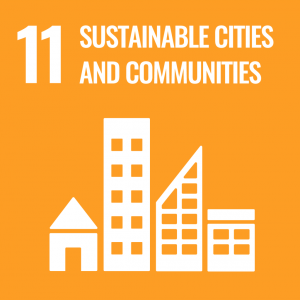“Cities and communities must themselves be sustainable. More and more of the world’s population lives in urban centres, and this is often the home of our universities too. Cities can be places of great innovation and opportunity, but they can also be home to intense poverty and inequality. The interaction between universities and their communities, urban and rural, needs to be a positive one that can last for generations.”
–
FEB UI provide public access to libraries including books and publications that can be viewed for complete information in http://rlc.fe.ui.ac.id/
FEB UI has Prof. Sumitro’s room as a museum where public access to museums, exhibition halls or galleries, or some works of art and artifacts belonging to Prof. Sumitro.
FEB UI environment enforces the provision of free public access to open spaces and green spaces facilitated by parks and fountains.
FEB UI environment enforces the provision of free public access to open spaces and green spaces facilitated by parks and fountains.
The academic community of FEB UI participates in appreciating art and culture, by contributing to local art, in terms of the number of annual public performances from university choirs, theater groups, orchestras, etc. either ad-hoc or as part of an ongoing program. One of them is shown by the annual activities regarding cultural festivals embodied in the National Level Traditional Choir and Dance Competition https://instagram.com/nff_febui?igshid=YmMyMTA2M2Y=
Measuring and setting targets for more sustainable travel is always enforced at FEB UI through appeals for walking, cycling or other non-motorized transport, vanpools, carpools, shuttlebuses or public transport, motorcycles, scooters or mopeds, or electric vehicles in coordination with the university level. What is stipulated in the Rector’s Decree Number 1304/SK/R/UI/2011 regarding the policy of using bicycles and pedestrians.
–
FEB UI has policies to promote or allow telecommuting or remote work for employees as a matter of standard policies or practices, or offer a hectic workweek to reduce employee travel, particularly during this pandemic. This is regulated in the “SURAT EDARAN” Number: SE-0692 / UN2. F6. D/OTL.09/2020 concerning The Extension of the Work from Home (WFH) Implementation Period for all Lecturers, Researchers, and Education Personnel. Perpanjangan_SURAT EDARAN WFH (ID) and “SURAT EDARAN” Number SE 0606/ UN2. F6. D/OTL.09/2020 SE Dekan Tentang WFH FEBUI (ID)
–
Prioritise pedestrian access on campus, which is stipulated in the Rector’s Decree Number 1304/SK/R/UI/2011 regarding the policy on the use of bicycles and pedestrians
–
FEB UI began to prioritize building new buildings with sustainable standards. Through the policies and practices chosen by the university to be obeyed by the Rector’s Decree Number 2446 / SK / R / UI / 2016 concerning the Master Plan of the New Campus.
–

